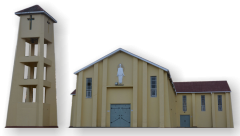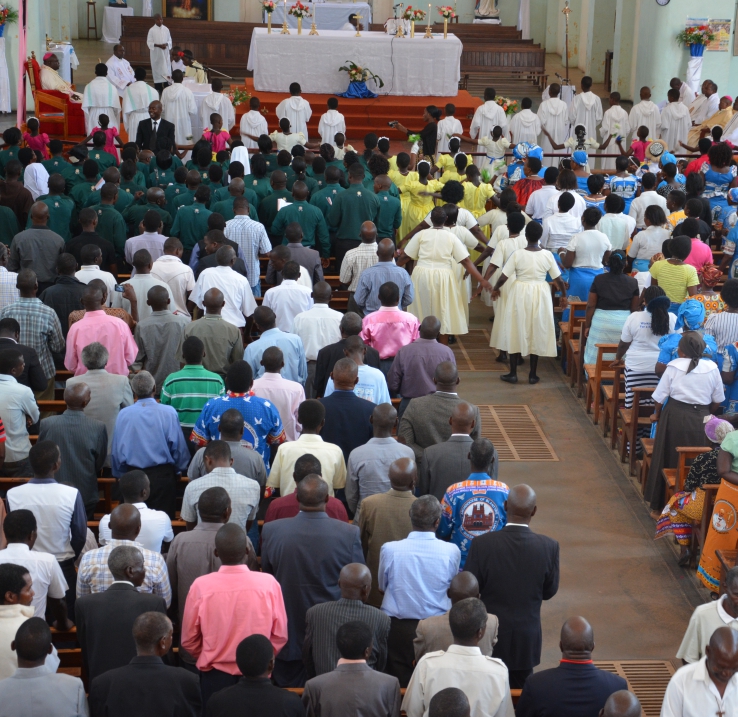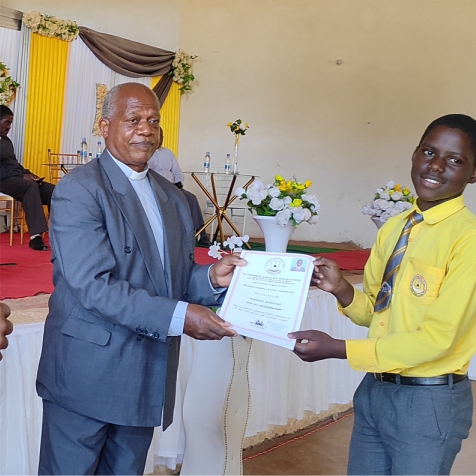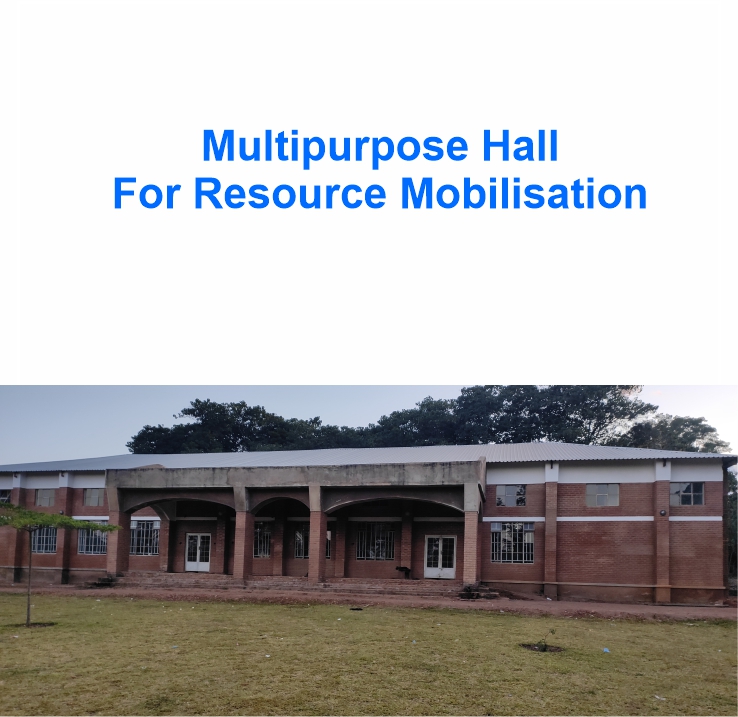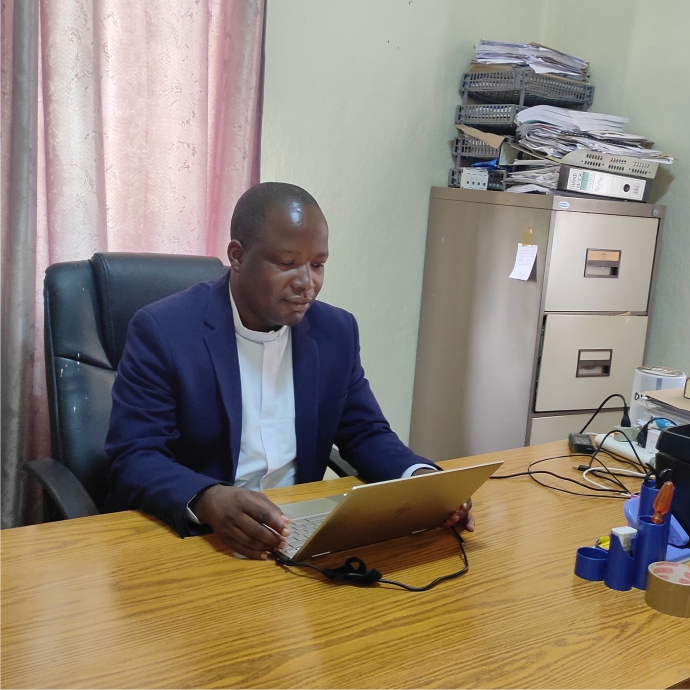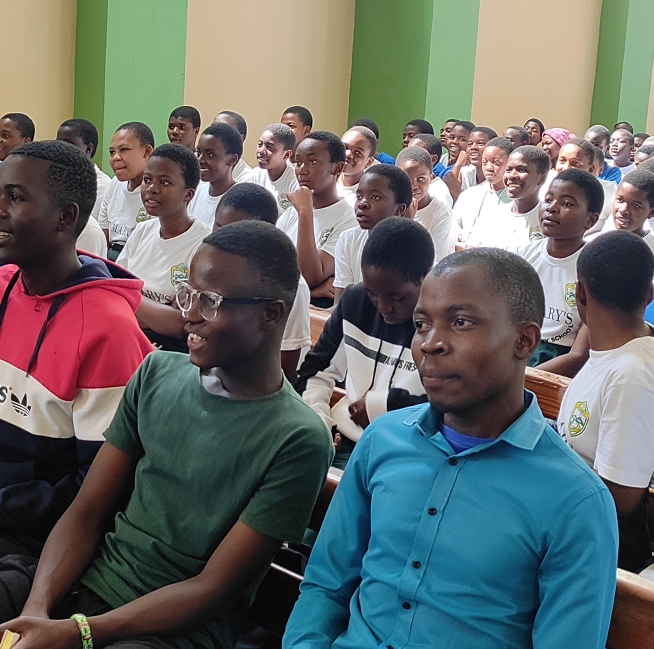The Catholic
Diocese of Zomba
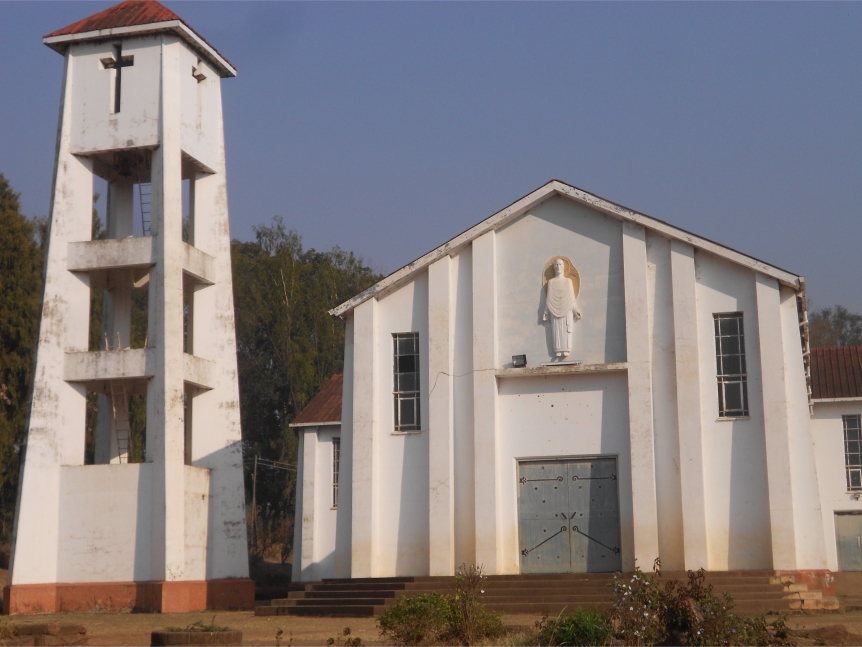
Zomba Diocese is in the southern region of Malawi. It is one of the eight Dioceses under
the Episcopal Conference of Malawi-ECM. It covers an
area of 3, 522 square kilometres and has 20 parishes. The current population of
Catholic Christians in the Diocese stands at over 220, 388 and the clergy
comprises 54 priests. The Diocese of Zomba is also blessed with a number of
congregations for religious men and women who are serving in different apostolates
in the Diocese.
Currently, the Bishop for Diocese is Rt. Rev. Alfred Mateyu Chaima.
OUR HISTORY
Zomba was made a Diocese in 1959 but first it belonged to the then Nyasa Vicariate which was created by Rome is 1897 with Joseph DuPont. a White Father, as its Bishop. At the time it was created, Zomba Diocese also belonged to the Southern Province which was known as Shire Vicariate which was created in 1908 and entrusted to the Montfort Missionaries under Bishop Auguste Prezeau as an Apostolic Vicar. He was followed by Bishop Louis Auneau who became an Apostolic Vicar and served the Shire Vicariate from 1910 to 1950.
On 17th May 1959, Pope John XXIII elevated all the
Vicariates in Nyasaland to the rank of Dioceses and Zomba because a Diocese in
the same year.
The CURRENT POPULATION
OF CATHOLIC CHRISTIANS IN THE
Diocese stands at over 220, 388 and the clergy comprises 54 priests. The Diocese of Zomba is also blessed with a number of congregations for religious men and women who are serving in different apostolates in the Diocese.
STRATEGIC OBJECTIVES
Our mandate is diverse, we exists to minister to the full human being by meeting the spiritual, social, physical and emotional needs
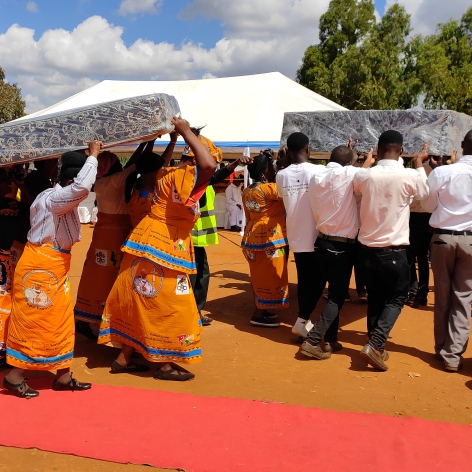
To improve the welfare of priests, sisters, brothers and the catechists sustainably and strengthen the moral, social and economic development of the youth in the Church.
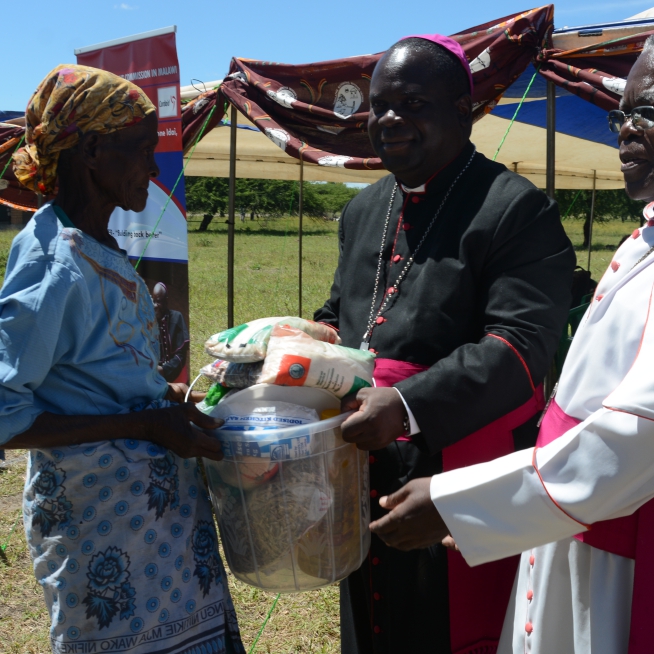
Towards reducing the suffering of the vulnerable groups, especially the poor, ultra poor, the sick, the elderly, persons with albinism and children
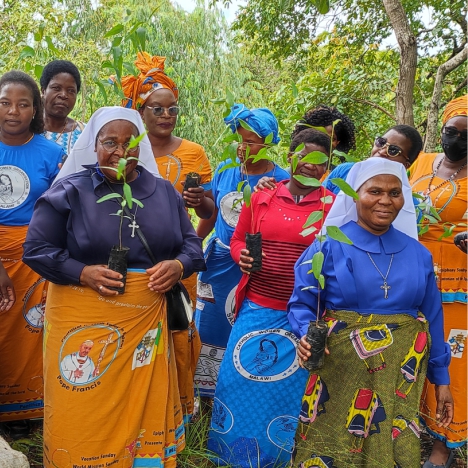
To protect the environment and play role in the development of natural resources.

